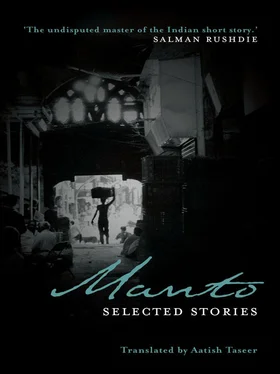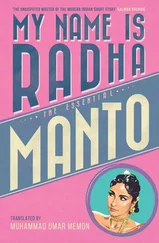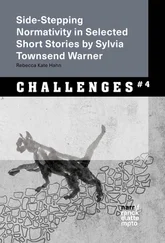Remember him, she did, but deep within herself. The mark on her son’s right cheek had branded itself in her heart.
A year later Salima had a daughter. Her face bore a great resemblance to her firstborn’s although she didn’t have a mark on her right cheek. Salima called her Mujiba because she had intended to name her son Mujib.
When she was two months old, Salima sat her in her lap, and taking a little kohl, made a large beauty spot on her right cheek. Then she thought of Mujib and wept. When her tears fell on her daughter’s cheeks, she wiped them with her dupatta and laughed. She wanted to try and forget her grief.
Salima had two sons thereafter. Her husband was now very pleased. Finding herself in Gujarat for a friend’s wedding, she returned again to the shrine and made enquiries about her Mujib, but to no avail. She thought that perhaps he had died. And so, one Thursday, she organised a memorial for him.
The women of the neighbourhood wondered whose death these rites were being so carefully observed for. Some even questioned Salima, but she gave no reply.
In the evening she took her ten year old Mujiba by the hand and led her inside. She made a spot on her right cheek with kohl and kissed it profusely.
She had always imagined her to be her lost Mujib, but now she gave up thinking about him. After the ceremony the weight in Salima’s heart lightened. She had made a grave for him in her imagination, and still in her imagination, she would place flowers on it.
Salima’s three children were now in school. Every morning she dressed them, made them breakfast, got them ready and sent them off. When they’d gone she’d think for a moment of Mujib, and the ceremony she had done for him. Her heart was lighter and yet she felt sometimes that the mark on Mujib’s right cheek was still branded on it.
One day her three children came running in, saying, ‘Ammi, we want to see the show.’
‘What show?’ she asked lovingly.
Her eldest daughter replied, ‘Ammi, there’s a man who does the show.’
Salima said, ‘Go and call him, but not in the house. He should do the show outside.’
The children ran off, came back with the man and watched the show.
When it was over Mujiba went to her mother to ask for money. Her mother took out a quarter rupee from her purse and went out onto the veranda. She had reached the door when she saw one of Shah Daulah’s mice moving his head in a crazed fashion. Salima began to laugh.
There were ten or twelve children around him, laughing uncontrollably. The noise was so great that no one could hear a word.
Salima advanced with the quarter rupee in her hand, but just as she was about to give it to Shah Daulah’s mouse, her hand was flung back as though struck by an electric current.
This mouse had a mark on its right cheek. Salima looked closely at him. His nose was running. Mujiba, who was standing near him, said to her mother, ‘This, this mouse, Ammi, why does he look so much like me? Am I a mouse too?’
Salima took Shah Daulah’s mouse by the hand and went inside. She closed the door and kissed him and said prayers for him. He was her Mujib. But his antics were so moronic that Salima laughed even though her heart was filled with grief
She said to Mujib, ‘My son, I am your mother.’
At this, the mouse laughed uproariously, and wiping his runny nose on his sleeve, stood with his hands open before his mother and said, ‘One paisa!’
His mother opened her purse, but by then her eyes had begun to overflow with tears. She took out a hundred rupees from her purse and went out to give it to the man who had made a spectacle of Mujib. He refused, saying that he couldn’t part with his means of income for such a small amount. In the end Salima got him to settle on five hundred rupees. But when she came back inside, Mujib was gone. Mujiba told her that he had run out of the back door.
Salima’s womb cried out for him to return, but he’d gone, never to return.
I no longer remember the year, but they were days when ‘Long Live the Revolution’ rang through the streets of Amritsar. There was a youthfulness to those slogans; they seemed to have something of the spirit of the region’s peasantry who, with baskets of manure on their heads, would slice through the city’s bazaars. What days they were! The fear that had hung in the air after Jallianwala Bagh had wholly disappeared. And a fearless longing had taken its place, a blind abandon, ignorant of all destination.
People shouted slogans, held demonstrations, were arrested in the dozens. Getting arrested became an amusing pastime — arrested in the morning; released in the evening; tried; sentenced to a few months in prison; released; a slogan shouted; imprisoned again.
They were days full of life. A tiny bubble could burst and cause a whirlpool. Someone standing in a square might say, ‘There should be a strike.’ And there was a strike. A ripple would rise: every man ought to wear khadi so that all Lancashire’s mills would close, and a boycott on foreign cloth would begin, pyres springing up in every square. People became impassioned, and then and there, tore off their clothes and flung them into the fire. If some woman threw down an unwanted sari from her balcony, the crowd applauded till its hands were sore.
I remember a bonfire outside a police station near the town hall. Sheikhoo, a classmate of mine, grew impassioned, and taking off his silk coat, threw it into the bonfire of foreign cloth. A sea of applause rose because Sheikhoo was the son of a well-known toady. The poor fool, growing still more passionate, took off his silk kurta and surrendered it to the fire. He only realised later that his gold buttons had gone with it!
But, I can’t mock Sheikhoo; I was pretty wild in those days myself. I wanted to get my hands on a pistol and start a terrorist organisation. It didn’t even occur to me that my father was a government pensioner; there was ferment in my heart akin to the kind one has in a game of flash.
School had never really interested me, but during that time, I developed a hatred for my studies. I’d leave the house with my books and head straight to Jallianwala Bagh. I’d stay there till the school day was over, observing the political activities or just lying under a tree’s shadow, looking at the women in the windows of houses beyond, certain that I would soon fall in love with one of them. Why, I can’t say.
There was plenty of bustle at the time in Jallianwala Bagh. Tents and makeshift walls had come up everywhere. In the biggest camp, every two or three days, a ‘dictator’ was appointed who all the volunteers would offer their salaams to. For two to three days, ten to fifteen at the maximum, this dictator would sit there, khadi clad, accepting the greetings of men and women with feigned seriousness. He would collect rice and wheat from the city’s merchants for the communal kitchen and drink endless lassis, which always seemed to be abundant in Jallianwala Bagh. Then, suddenly one day, he’d be arrested and taken off to prison.
I had an old classmate called Shahzada Ghulam Ali. The facts I’m about to recount now will give you some idea of our friendship: we failed the matric exam together, twice; we ran away from home once and went to Bombay. We thought we’d go on to Russia, but our money ran out and we were forced to sleep on pavements, at which point, we wrote letters home, begged forgiveness and made our way back.
Shahzada Ghulam Ali was a beautiful young man. He was tall and fair in the Kashmiri way, with a fine nose, playful eyes and great, rakish charm.
When we were in school, he was not called Shahzada, but later, the city’s revolutionary activities took hold of him. He attended some ten — fifteen meetings, and the demonstrations, the slogans, the garlands of marigolds, the passionate songs, the talk of freedom with lady volunteers, turned him into an amateur revolutionary. Then, one morning he made his first speech. The following day I read in the newspaper that Ghulam Ali had been made Shahzada.
Читать дальше












